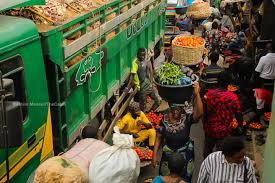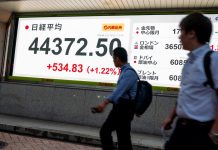Households have expressed pessimism over the rising costs of living in the country, and have projected that costs of transportation, house purchase, purchase of car/vehicle, rents and medical expenses will experience an increase over the next six months.
According to the newly released ‘Households Expectation Survey’ by the Central Bank of Nigeria, consumers said they will spend their incomes only on basic items such as food and other household items, education, transportation, electricity and medical expenses.
The CBN’s overall Consumer Confidence Index and outlook is attributed to the outlook of consumers on three key dimensions: Economic Conditions, Family Financial Situation, and Family Income.
CBN said, “More consumers believe that the cost of transportation, house purchase, purchase of car/vehicle, rents and medical expenses will experience increase over the next six months in the following order.
“The Buying Condition Index1 for big-ticket items like Consumer Durables, Motor Vehicles and Buildings & Landed Properties, indicated that most respondents consider the current month unfavourable for purchasing these items. Consumers also do not think that the next three and six months are ideal periods to buy these items.”
A vendor counts her money as a girls looks on at the Lokoja International Market in Lokoja on October 21, 2024. (Photo by OLYMPIA DE MAISMONT / AFP)
The CBN’s survey rides on the back of a similar report by AFP, that the country’s economic crisis and soaring petrol prices have forced many Nigerians to public transportation over the use of their cars.
A case study was made of Bolaji Emmanuel who gave up his driver and his Honda Pilot utility vehicle due to spiking living costs.
The price of petrol has risen more than fivefold since President Bola Tinubu took office in May 2023.
“I parked it at my son’s house. I use public transport now,” Emmanuel, a 72-year-old retired health worker, told AFP. “It is not convenient, but it is what the economy demands.”
Since coming to power, Tinubu has ended a costly fuel subsidy and freed up the naira currency, in reforms that government officials and analysts say will revive the economy and attract investors.
But in the short term, Nigeria has seen one of its worst crises in decades with inflation at a three-decade high.
A A litre of petrol sold for around 195 naira just before Tinubu took office. The price rose to at least 998 naira ($0.61) per litre in Lagos and 1,030 naira in the capital, Abuja, at the beginning of October. It can go for as much as 1,300 naira elsewhere.
Inflation reached an almost three-decade high of 34.19 per cent in June. It has since slowed to 32.7 per cent in September and October.
-Advertisement-
Grab our latest Magazine, "Chief Wole Olanipekun, CFR, SAN, A man of wide horizons and deep intentions". Get your order fast and stress free.
For more details about Newswire Law&Events Magazine, kindly reach out to us on 08039218044, 09070309355. Email: newswiremagazine@yahoo.co.uk. You will be glad you did






